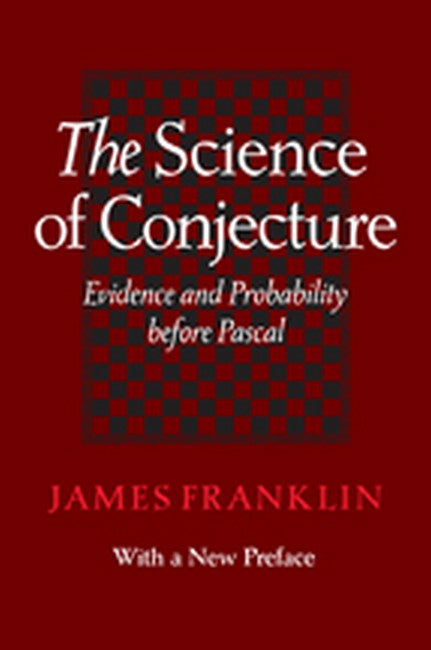Contents:
Preface
Chapter 1: The Ancient Law of Proof
Egypt and Mesopotamia; The Talmud; Roman Law; Proof and Presumptions; Indian LawChapter 2: The Medieval Law of Evidence: Suspicion, Half-proof, and the Inquisition
Dark Age Ordeals; The Gregorian Revolution; The Glossators Invent Half-Proof; Presumptions in Canon Law; Grades of Evidence and Torture; The Postglossators Bartolus and Baldus; The Competed Theory; The Inquisition; Law in the EastChapter 3: Renaissance Law
Henry VIII Presumed Wed; Tudor Treason Trials; Continental Laws: The Treatises on Presumptions; The Witch Inquisitors; English Legal Theory and the Reasonable ManChapter 4: The Doubting Conscience and Moral Certainty
Penance and Doubts; The Doctrine of Probabilism; Suarez: Negative and Positive Doubt; Grotius, Silhon, and the Morality of the State; Hobbes and the Risk of Attack; The Scandal of Laxism; English Casuists Pursue the Middle Way; Juan Caramuel Lobkowitz, Prince of Laxists; Pascal's Provincial LettersChapter 5: Rhetoric, Logic, Theory
The Greek Vocabulary of Probability; The Sophists and the Art of Persuasion; Aristotle's Rhetoric and Logic; The Rhetoric to Alexander; Roman Rhetoric: Cicero and Quintilian; Islamic Logic; The Scholastic Dialectical Syllogism; Probability in Ordinary Language; Humanist Rhetoric; Late Scholastic LogicChapter 6: Hard Science
Observation and Theory; Aristotle's Not-by-Chance Argument; Averaging of Observations in Greek Astronomy; The Simplicity of Theories; Nicole Oresme on Relative Frequency; Copernicus; Kepler Harmonizes Observations; Galileo on the Probability of Copernican HypothesisChapter 7: Soft Science and History
The Physiognomics; Divination and Astrology; The Empiric School of Medicine on Drug Testing; The Talmud and Maimonides on Majorities; Vernacular Averaging and Quality Control; Experimentation in Biology; The Authority of Histories; The Authenticity of Documents; Valla and the Donation of Constantine; Cano and the Signs of True HistoriesChapter 8: Philosophy: Action and Induction
Carneades's Mitigated Skepticism; The Epicureans on Inference from Signs; Inductive Skepticism and Avicenna's Reply; Aquinas on Tendencies; Scotus and Ockham on Induction; Nicholas of Autrecourt; The Decline of the West; Bacon and Descartes: Certainty? or Moral Certainty?; The Jesuits and Hobbes on Induction; Pascal's Deductivist Philosophy of ScienceChapter 9: Religion: Laws of God, Laws of Nature
The Argument from Design; The Church Fathers; Inductive Skepticism by Revelation; John of Salisbury; Maimonides on Creation; Are Laws of Nature Necessary?; The Reasonableness of Christianity; Pascal's WagerChapter 10: Aleatory Contracts: Insurance, Annuities, and Bets
The Price of Peril; Doubtful Claims in Jewish Law; Olivi on Usury and Future Profits; Pricing Life Annuities; Speculation in Public Debt; Insurance Rates; Renaissance Bets and Speculation; Lots and Lotteries; Commerce and the CasuistsChapter 11: Dice
Games of Chance in Antiquity; The Medieval Manuscript on the Interrupted Game; Cardano; Gamblers and Casuists; Galileo's Fragment; De Méré and Roberval; The Fermat-Pascal Correspondence; Huygens' Reckoning in Games of Chance; CaramuelChapter 12: Conclusion
Subsymbolic Probability and the Transition to Symbols; Kinds of Probability and the Stages of Discovering Them; Why Not Earlier?; Two Parallel Histories; The Genius of the Scholastics and the Orbit of Aristotle; The Place of Law in the history of IdeasEpilogue: The Survival of Unquantified Probability
The Port-Royal Logic; Leibniz's Logic of Probability; To the PresentAppendix: Review of Work before 1660
Request Academic Copy
Please copy the ISBN for submitting review copy form
Description
""The text has an even wider importance in that it signals the need for more, not less, study of the history, philosophy and social studies in science to occupy a greater space in undergraduate degrees so that an educated electorate is better able to evaluate what the STEM community tells us is good for the progress of society.""

